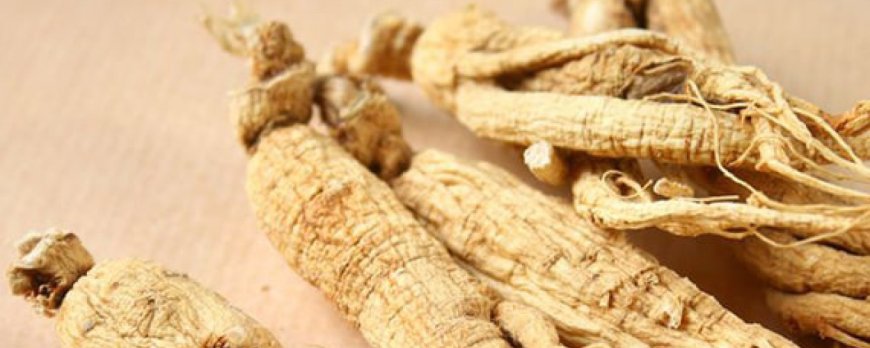Can cordyceps help autoimmune disorders?
Explore the possibilities: Can cordyceps help autoimmune disorders? Uncover research insights on the potential benefits of this traditional remedy.

Can Cordyceps Help Autoimmune Disorders?
The potential of cordyceps in treating autoimmune disorders has garnered attention due to its immune-regulating effects and historical use in traditional Chinese medicine. Cordyceps, a genus of fungus, has been used for centuries in traditional Chinese medicine to treat various ailments, including fatigue, cough, and renal dysfunction. Its immune-regulating properties and potential to enhance immune function have also been studied.
Key Takeaways:
- Cordyceps is a genus of fungus with medicinal properties.
- Cordyceps has been used in traditional Chinese medicine to treat various conditions.
- Research suggests that cordyceps may have immune-regulating effects.
- There is limited research specifically on the use of cordyceps for autoimmune disorders.
- Further studies are needed to determine the effectiveness of cordyceps in treating autoimmune conditions.

Understanding Autoimmune Disorders
Autoimmune disorders are characterized by an overactive immune system that mistakenly attacks healthy cells and tissues, leading to inflammation and a range of symptoms. These conditions can affect various parts of the body and can have a significant impact on a person's quality of life.
When the immune system is functioning correctly, it helps protect the body against harmful pathogens and foreign substances. However, in autoimmune disorders, the immune system becomes confused and starts attacking the body's own cells and tissues, causing damage and inflammation. The exact cause of autoimmune disorders is not fully understood, but a combination of genetic and environmental factors is believed to play a role in their development.
There are more than 80 known autoimmune disorders, including rheumatoid arthritis, lupus, multiple sclerosis, and type 1 diabetes, among others. Each condition has its own unique set of symptoms and can affect different organs and systems in the body. Common symptoms of autoimmune disorders include fatigue, joint pain, skin rashes, muscle weakness, and gastrointestinal issues.
Diagnosis and Treatment
Diagnosing autoimmune disorders can be challenging, as symptoms can vary widely and often overlap with other conditions. Healthcare professionals typically use a combination of medical history, physical examination, and specific blood tests to help determine the presence of an autoimmune disorder. Once diagnosed, treatment usually focuses on managing symptoms, reducing inflammation, and suppressing the immune system to prevent further damage.
Treatment options for autoimmune disorders may include medications, lifestyle changes, and alternative therapies. As with any medical condition, it is essential to consult with a healthcare professional to develop an individualized treatment plan.
While there is no cure for autoimmune disorders, ongoing research aims to better understand these conditions and develop more effective treatment options. The potential role of natural remedies, such as cordyceps, in managing autoimmune disorders is an area of interest and warrants further investigation.

The Medicinal Properties of Cordyceps
Cordyceps, a genus of fungus, has been revered in traditional Chinese medicine for centuries due to its range of medicinal properties. This unique fungus, particularly the species Cordyceps sinensis, has been used to treat various health conditions, including fatigue, cough, renal dysfunction, and more. It is also believed to have immune-regulating effects, making it an intriguing potential remedy for autoimmune disorders.
Studies have shown that cordyceps possesses remarkable immunomodulating properties, which can enhance the function of the immune system. It has been found to promote the production of certain immune cells, stimulate the activity of natural killer cells, and regulate immune responses. These effects suggest that cordyceps may potentially help alleviate symptoms associated with autoimmune disorders, where the immune system mistakenly attacks healthy cells and tissues.
Research on cordyceps and autoimmune disorders
- The scientific community has begun exploring the potential of cordyceps in managing autoimmune disorders, although research is still limited.
- Preliminary studies have shown promising results, with cordyceps demonstrating anti-inflammatory and immunomodulatory effects that may help reduce the severity of autoimmune symptoms.
- However, further research is needed to fully understand the mechanisms of cordyceps and its effectiveness in treating specific autoimmune conditions.
Although cordyceps holds great promise, it is important to note that it should not be used as a sole treatment for autoimmune disorders. It is always recommended to consult with a healthcare professional before incorporating any natural remedies into your treatment plan. With ongoing research, cordyceps may prove to be a valuable supplement in the management of autoimmune disorders, working alongside conventional medical approaches to improve overall health and well-being.
Cordyceps and Immune Health
Studies have shown that cordyceps can exert immunomodulating effects, boosting the activity of immune cells and enhancing overall immune function. This powerful fungus has been found to stimulate the production of cytokines, proteins that play a crucial role in regulating immune responses. Cordyceps has also been shown to increase the activity of natural killer cells, which are responsible for targeting and destroying foreign invaders in the body.
Cordyceps supplements have been found to enhance the production of T-helper cells, which coordinate the immune response against infections and diseases. These effects suggest that cordyceps may have promising potential in supporting immune health and balancing immune responses in individuals with autoimmune disorders.
Although research specifically on the use of cordyceps for autoimmune conditions is limited, its immunomodulating effects provide a promising avenue for exploration. It is important to note, however, that cordyceps should not be used as a standalone treatment for autoimmune disorders. It should be considered as part of a comprehensive approach that includes medical supervision, conventional treatment, and lifestyle modifications.
In conclusion, while more research is needed to fully understand the potential benefits of cordyceps for autoimmune disorders, its immunomodulating effects show promise in supporting immune health. If you are considering incorporating cordyceps into your healthcare routine, it is important to consult with a healthcare professional to ensure it is safe and appropriate for your specific condition.
Potential Benefits of Cordyceps for Autoimmune Disorders
Research suggests that cordyceps may offer potential benefits for individuals with autoimmune disorders by alleviating inflammation and regulating the immune system. Cordyceps, a genus of fungus known for its medicinal properties, has long been used in traditional Chinese medicine for its immune-regulating effects. While there is limited research specifically on cordyceps' effects on autoimmune disorders, the available evidence shows promise.
One potential benefit of cordyceps for autoimmune disorders is its ability to modulate inflammation. Chronic inflammation is often a hallmark of autoimmune conditions, and reducing inflammation can help manage symptoms and improve overall well-being. Cordyceps has been found to have anti-inflammatory properties, which may help alleviate the inflammatory response associated with autoimmune disorders.
Another potential benefit of cordyceps is its immunomodulating effects. It has been shown to enhance the function of the immune system, potentially helping to regulate the immune response in individuals with autoimmune disorders. By promoting a balanced immune system, cordyceps may help reduce autoimmune activity and mitigate the symptoms of these conditions.
While the research on cordyceps and autoimmune disorders is still emerging, the available evidence suggests that cordyceps holds promise as a natural remedy. However, it is important to note that more studies are needed to better understand the specific effects of cordyceps on different autoimmune disorders and its optimal dosage for individuals with these conditions.
Cordyceps Supplements for Autoimmune Disorders
Cordyceps supplements have gained popularity as a complementary approach to managing autoimmune disorders, but it is important to understand the proper dosage, potential side effects, and quality standards before incorporating them into your treatment plan.
Dosage: When using cordyceps supplements, it is crucial to follow the recommended dosage guidelines provided by the manufacturer or consult with a healthcare professional. The dosage may vary depending on factors such as the severity of your autoimmune condition and your overall health.
Potential Side Effects: While cordyceps is generally considered safe for most individuals, some people may experience mild side effects such as digestive discomfort, dry mouth, or insomnia. If you experience any adverse reactions, it is important to discontinue use and consult with a healthcare professional.
Quality Standards: To ensure the efficacy and safety of cordyceps supplements, it is essential to choose a high-quality product from a reputable manufacturer. Look for supplements that are third-party tested for purity and quality and follow Good Manufacturing Practices (GMP) guidelines.
Summary:
Cordyceps supplements can be a potential addition to your autoimmune disorder management, but it is crucial to use them responsibly. Follow recommended dosages, be aware of potential side effects, and choose high-quality supplements to support your overall health and well-being.

Current Research on Cordyceps and Autoimmune Disorders
While research on the specific use of cordyceps for autoimmune disorders is limited, several studies have explored its effects on immune function and related conditions. Cordyceps has been found to have immunomodulating effects, meaning it can enhance the function of the immune system. This has led to investigations into its potential applications for autoimmune diseases, which occur when the immune system mistakenly attacks the body's own tissues.
One study published in the Journal of Medicinal Food examined the effects of cordyceps extract on immune cell activity in mice with autoimmune hepatitis. The researchers observed that cordyceps extract reduced liver damage and inflammation, suggesting a potential therapeutic effect on autoimmune liver diseases.
Other research has focused on cordyceps' effects on immune-related conditions:
- A study published in the Journal of Alternative and Complementary Medicine found that cordyceps supplementation improved exercise performance and enhanced immune function in healthy older adults. This suggests that cordyceps may have a positive impact on immune health in general.
- Another study, published in the International Journal of Medicinal Mushrooms, investigated the effects of cordyceps on chronic obstructive pulmonary disease (COPD), a condition characterized by chronic inflammation of the airways. The researchers found that cordyceps supplementation improved lung function and reduced inflammation markers in COPD patients.
- In a review published in the journal Pharmacological Research, researchers analyzed the potential of cordyceps as an adjunct therapy for cancer. They found that cordyceps exhibited anti-cancer effects by inhibiting tumor growth and inducing apoptosis in cancer cells. This suggests that cordyceps may have immune-modulating effects that could be relevant to autoimmune disorders where immune dysfunction is a key factor.
While these studies provide promising insights into cordyceps' effects on immune function and related conditions, more research is needed to determine its specific efficacy and safety in treating autoimmune disorders. It is important to consult with a healthcare professional before using cordyceps or any other natural remedy for autoimmune conditions.
Managing Autoimmune Disorders with Natural Remedies
In addition to cordyceps, there are other natural remedies that individuals with autoimmune disorders may explore as part of their holistic treatment plan. These remedies, often used alongside conventional medical interventions, aim to support overall health and potentially alleviate symptoms associated with autoimmune conditions. Here are some natural options to consider:
- Dietary Modifications: Making dietary changes can have a significant impact on autoimmune disorders. Consuming an anti-inflammatory diet rich in fruits, vegetables, whole grains, and lean proteins can help reduce inflammation and support immune function. Some individuals may also find relief by eliminating certain trigger foods, such as gluten or dairy, from their diet.
- Stress Management: Chronic stress can worsen autoimmune symptoms. Incorporating stress management techniques, such as meditation, yoga, or deep breathing exercises, can help reduce stress levels and support overall well-being.
- Herbal Supplements: Certain herbal supplements, like turmeric, ginger, and green tea, have anti-inflammatory properties that may help alleviate autoimmune symptoms. However, it is essential to consult with a healthcare professional before incorporating any herbal supplements into your treatment plan.
Remember, natural remedies should not replace medical advice or prescribed medications. It's crucial to work with a healthcare provider to develop a comprehensive treatment plan that addresses your specific needs and ensures proper management of your autoimmune disorder. While cordyceps and other natural remedies may show promise, more research is needed to fully understand their effectiveness in treating autoimmune conditions.

Cordyceps and Autoimmune Inflammation
Autoimmune disorders are often characterized by chronic inflammation, and cordyceps may offer potential benefits in reducing inflammation and related symptoms. Cordyceps is known for its immune-regulating effects, which could potentially help modulate the immune response in individuals with autoimmune conditions.
Studies have shown that cordyceps has anti-inflammatory properties, which may help alleviate the excessive inflammation often seen in autoimmune disorders. It has been suggested that cordyceps could inhibit the production of pro-inflammatory molecules and promote the release of anti-inflammatory compounds, thus balancing the immune response. This could potentially help reduce the severity of symptoms associated with autoimmune inflammation.
Furthermore, cordyceps has been found to have antioxidant properties, which could further contribute to its potential benefits in autoimmune inflammation. Oxidative stress, caused by an imbalance between harmful free radicals and the body's antioxidant defenses, is often observed in autoimmune disorders. By neutralizing these free radicals, cordyceps may help alleviate oxidative stress and protect against further tissue damage.
- Cordyceps may reduce inflammation by inhibiting pro-inflammatory molecules.
- It may promote the release of anti-inflammatory compounds.
- The antioxidant properties of cordyceps could help alleviate oxidative stress in autoimmune disorders.
While the existing research on the use of cordyceps for autoimmune inflammation is limited, these preliminary findings offer insight into its potential therapeutic benefits. It is important to note that cordyceps should be used as a complementary approach alongside conventional medical treatments, and individuals should consult with their healthcare providers before incorporating cordyceps into their treatment plan.
Conclusion
While cordyceps shows promise in potentially alleviating autoimmune disorders, further research is needed to fully understand its effectiveness and determine optimal treatment approaches. Cordyceps, a genus of fungus with medicinal properties, has been used in traditional Chinese medicine for centuries. It is believed to have immune-regulating effects and has been used to treat various conditions, including fatigue, cough, and renal dysfunction.
Studies have shown that cordyceps may inhibit tumor growth and induce apoptosis in cancer cells, demonstrating its potential as an anti-cancer agent. Additionally, cordyceps has immunomodulating effects, enhancing the function of the immune system. However, there is limited research specifically on the use of cordyceps for autoimmune disorders.
As autoimmune disorders are complex conditions involving dysregulation of the immune system, it is essential to conduct further studies to determine the specific effects of cordyceps on these conditions. Rigorous clinical trials are needed to evaluate its efficacy, dosing, and potential side effects. It is also crucial to understand how cordyceps can be integrated with conventional treatment approaches for autoimmune disorders.
Despite the need for more research, cordyceps remains a natural remedy that holds promise in supporting immune health and potentially alleviating autoimmune disorders. Individuals interested in exploring cordyceps supplementation should consult with healthcare professionals and consider it as part of a comprehensive treatment plan that may include other natural remedies and conventional medical interventions.


































































































































